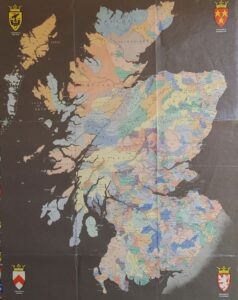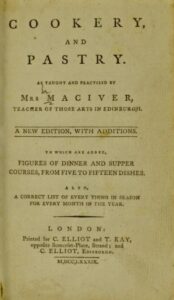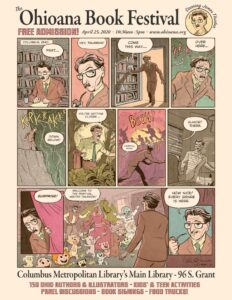 In researching my Highland Scots ancestors, I was excited to see this map again. This “Scotland of Old” map is cropped from a photo I took when visiting the Pacific Northwest Highland Games at Enumclaw back in 2016. (The event will be virtual this year. Check out info here.)
In researching my Highland Scots ancestors, I was excited to see this map again. This “Scotland of Old” map is cropped from a photo I took when visiting the Pacific Northwest Highland Games at Enumclaw back in 2016. (The event will be virtual this year. Check out info here.)
When I was growing up, this map hung at the end of our bedroom hallway (as a child, it scared me — it looked like a witch flying through the air on a broom, her cape flying out behind her). My dad hung it in our hall because of his Patterson ancestry. His surname stemmed back through his paternal line to Highland Scots, Patterson being a sept of Clan Chattan, which also encompassed Mackintoshes, McPhersons, Nobles, and others in our ancestry too. Dad was descended of Gaelic-speaking Highland Scots who immigrated to Columbiana County, Ohio circa 1804.
I’ve been working for some time now on a deep dive into the 18th century world of these Highland Gaels in order to write a historical novel about their lives. As I attempt to re-create what life was like in those times, the tiniest of details hang me up, sometimes for hours. A simple wedding scene, for instance, becomes complex on many levels.
First, because the Scottish Highlands are not one cohesive culture. The designation of “Highlands” refers to the north and west on the map above, where the larger, spacious clan boundaries are found. (The denser areas to the south and east indicate the Scottish Lowlands, more commercially connected with England to the south, and much earlier to shift to English as the predominant language.) The Highlands topography to the north and west is rife with deep glens, lakes, and snow-capped mountains, so when it comes to weddings, superstitions, and lore, the remoteness of populations led to a variety of customs. So there’s no one right answer, other than, “it depends.”
It is my good fortune that Aeneas Mackintosh of Moy wrote an 18th century account of wedding traditions in the Strathdearn valley where my book is partially set. On the morning of the wedding, Mackintosh wrote, the celebrants leave for the church,
being dressed, the Bridegroom first (preceded by a Bag pipe) having a young man on each side of him, next comes the bride with her two Maids, proceed for church; when the ceremony is over, and the partys come out, pistols and guns are fired over their heads by their acquaintances who then join, and a Cake broke over the Brides head, when a great Struggle is made for a piece of it.
 Glorious, right? Gunshots and a riotous melee? The scene is exuberant and what one might expect of the Highlands. But the mention of a Cake made me wonder. What kind of Cake? Certainly, the author did not mean the elaborate tiered cakes standard at weddings of today. The quest to learn more led me to a delightful find. At archive.org, I came across a recipe book — “Cookery and Pastry” — written in 1783 by Mrs. MacIver “Teacher of those arts in Edinburgh,” wherein I found a slew of 18th century Scottish recipes — for hare soup, for broiling pigeons whole, and yes, for a yeast shortbread cake that might even come close to the mark.
Glorious, right? Gunshots and a riotous melee? The scene is exuberant and what one might expect of the Highlands. But the mention of a Cake made me wonder. What kind of Cake? Certainly, the author did not mean the elaborate tiered cakes standard at weddings of today. The quest to learn more led me to a delightful find. At archive.org, I came across a recipe book — “Cookery and Pastry” — written in 1783 by Mrs. MacIver “Teacher of those arts in Edinburgh,” wherein I found a slew of 18th century Scottish recipes — for hare soup, for broiling pigeons whole, and yes, for a yeast shortbread cake that might even come close to the mark.




